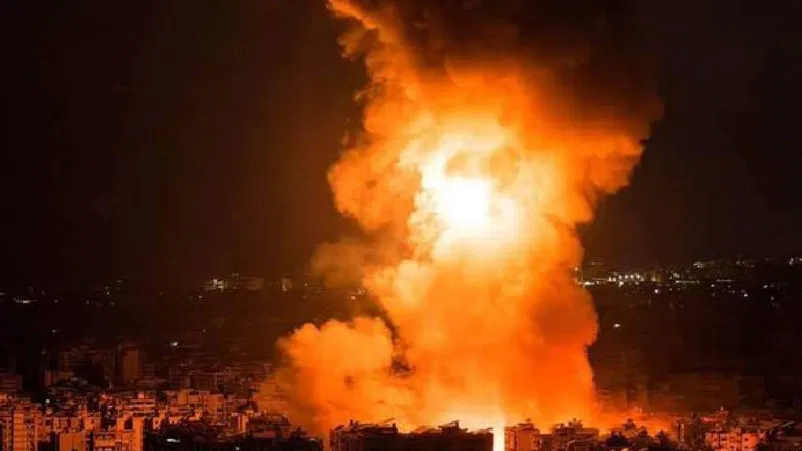
The enduring tensions between Israel and Iran surged to a new level on Saturday, October 26, when Israel launched targeted missile strikes on Iranian military locations. This response marks a significant escalation in an ongoing standoff, as Israel intensified its military focus with precision attacks on installations in Tehran and Karaj, the latest in a 24-day wave of rising hostilities.
Israel launched seven missiles aimed at critical military sites. The strikes have heightened tensions throughout West Asia, with the United States openly supporting Israel’s stance, framing the actions as necessary self-defense.
Israel Defense Force (IDF) spokesperson Daniel Hagar confirmed that the strikes were a direct response to Iran’s ongoing attacks, which began on October 1. Since then, Israel has reportedly faced aggression on seven different fronts from Iran and its regional allies, a situation that Hagar characterized as necessitating a strong defensive stance. Emphasizing Israel’s right to protect itself, Hagar stated that seven missiles were used to neutralize perceived threats in Iran, underscoring Israel’s commitment to safeguarding its national security.
Iranian state media reported explosions near Tehran’s Imam Khomeini International Airport, attributing them to the Israeli strikes. While acknowledging the missile attack, Iran sought to downplay its impact, noting that its active air defense systems mitigated potential damage. In response, Israel, Iran, and Iraq each closed their respective airspaces, a precautionary move amid growing tensions. Flights within Iranian airspace were swiftly rerouted during the strike, reflecting heightened alert levels.
The United States has publicly supported Israel’s retaliatory action, with White House National Security Council spokesperson Shawn Savet stating that Israel’s strikes were a justified reaction to Iran’s aggression. Savet also confirmed that Israel had informed the White House of its planned counter-attack in advance. Emphasizing Israel’s sovereignty and right to self-defense, the U.S. stance underscores the strategic partnership between the two nations in this fraught regional context.
Following Israel’s missile strikes, Iran immediately closed its airspace until Saturday night. Four planes were redirected out of Iranian airspace at the time of the strikes. In a separate statement, Iran warned Israel against further military actions, indicating that any additional strikes would provoke a swift response. The closure of Iran’s airspace and its warnings reflect a state of heightened readiness and signal Iran’s resolve amid intensifying hostilities.
The U.S. administration continues to closely monitor this rapidly escalating conflict in West Asia. U.S. Secretary of State Antony Blinken reaffirmed Israel’s right to defend itself but cautioned that retaliatory actions could contribute to regional instability. With Israel also confronting threats from Hamas in Gaza and Hezbollah in Lebanon, the potential for wider conflict in the area remains a significant concern. Israel’s Defense Minister has reiterated that any hostile actions against Israel will be met with severe consequences.
The current escalation between Israel and Iran presents a grave risk to regional stability, with the potential for broader implications across the Middle East. In the face of sustained hostilities, diplomatic efforts may be required to de-escalate the situation and prevent further deterioration in the already volatile landscape.







